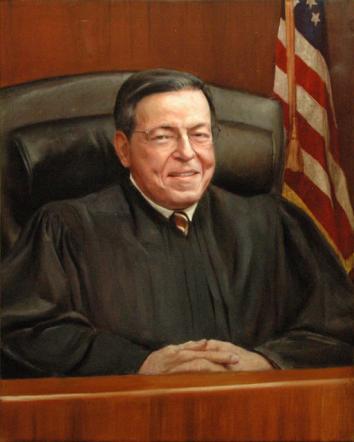On Tuesday, U.S. District Judge Juan Pérez-Giménez dismissed a challenge to Puerto Rico’s gay marriage ban, holding that “no right to same-gender marriage emanates from the Constitution.” Pérez-Giménez, a Carter appointee, is only the second district judge to uphold such a ban since the Supreme Court’s 2013 Windsor ruling, and the first Democrat-appointed judge to do so since then.
But don’t be too alarmed by Pérez-Giménez’s decision. Although the judge seems to think he is taking a courageous stand for constitutional principles, his opinion is a hopelessly muddled mélange of casuistry, magical thinking, and almost comic inanity. Pérez-Giménez centers his opinion around Baker v. Nelson, a 1972 case in which the Supreme Court dismissed a challenge to Minnesota’s gay marriage ban “for want of a substantial federal question.” The Baker decision was a summary affirmance of a lower court’s ruling and consisted of a single sentence. Still, Pérez-Giménez insists, summary affirmances are considered binding on lower courts, so he was forced by Baker to dismiss a challenge to Puerto Rico’s ban as well. (Judge Jeffrey Sutton of the 6th Circuit has also fretted that Baker gores the constitutional case for marriage equality.)
There is, though, a problem with this logic. Summary affirmances, the Supreme Court once explained, are no longer binding precedent when they have been seriously undermined by later “doctrinal developments.” Pérez-Giménez dismisses the notion that the landmark gay rights cases Romer and Lawrence undercut Baker, because they involved “very different” questions. That is perhaps not an entirely laughable proposition. But Pérez-Giménez seems to be forgetting something: that little case called Windsor, in which the Supreme Court ruled that a federal gay marriage ban “degrade[s]” and “demean[s]” gay couples and “violates basic due process and equal protection principles.”
The dozens of judges who have ruled in favor of marriage equality over the last year and a half all presumed, wisely, that this holding fatally undermines Baker. Pérez-Giménez does not. He claims that, to the contrary, Windsor actually strengthened Baker, writing that the two cases “work in tandem to emphasize” states’ control over marriage. As proof, he pulls a few hazy quotes from the portion of Windsor that describes states’ historical authority over marriage—and ignores entirely its central constitutional holding. (Amusingly, Pérez-Giménez bolsters his anti-gay reading of Windsor with a quote from Justice Samuel Alito’s dissent.) He then leaves his colleagues with this ornery grunt of a parting shot:
A clear majority of courts have struck down statutes that affirm opposite-gender marriage only. In their ingenuity and imagination they have constructed a seemingly comprehensive legal structure for this new form of marriage. And yet what is lacking and unaccounted for remains: are laws barring polygamy, or, say the marriage of fathers and daughters, now of doubtful validity? … It would seem so, if we follow the plaintiffs’ logic, that the fundamental right to marriage is based on “the constitutional liberty to select the partner of one’s choice.”
Given that Pérez-Giménez closes his opinion by uncorking his paranoia and hissing about the looming peril of father-daughter marriages, it is probably safe to say that his ruling does not pose a serious threat to the recent judicial trend toward marriage equality. It does, however, pull the 1st Circuit back into the marriage equality debate: Every other state within the circuit has already approved gay marriage, but thanks to Pérez-Giménez, the circuit court will now have to decide the issue. That makes one more circuit that could rule against marriage equality, potentially creating a circuit split and a dire need for Supreme Court review. Should that occur, Pérez-Giménez will be the judge who forced the justices to take on the issue—and, quite likely, to bring marriage equality to the entire country. It is, no doubt, an honor he would cherish.
